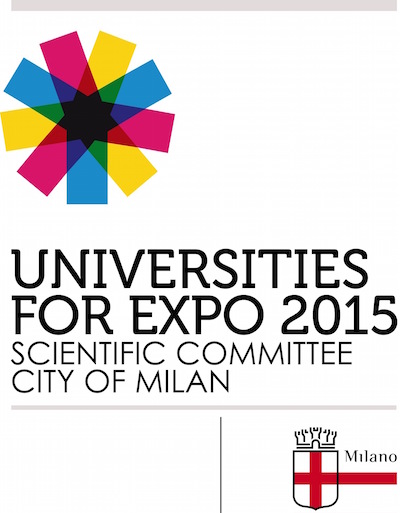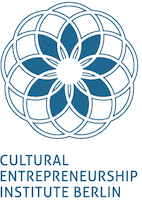Prof. Dr. Dr. h.c. Julian Nida-Rümelin
Ethics (including as a body of philosophy) should not confine themselves to devising abstract criteria for judging actions, but should make reference to concrete ways of life. Indeed, standards of moral judgment flow from the shared norms and values that find expression in concrete ways of life. The way we eat and produce our food are indisputably key factors in our way of life. From a historical perspective, we know this: think only of the transition from societies of hunters and gatherers to arable cultures and on to today’s industrial agriculture and factory farming. Ethical questions arise around
1. our responsibility for ourselves (our health and our general way of life)
2. our responsibility towards others in our society
3. our responsibility towards future generations
4. our responsibility towards animals
5. our responsibility for managing resources and preserving the environment
This talk will provide food for discussion about human dietary practice in terms of these responsibilities.
Under the patronage of
Ladies and gentlemen,
Welcome to “Cultural Entrepreneurship – Ethics and Food”, our conference in Milan 2015!
This event offers women and men from the world of economics, politics and IT a platform to explore and debate the links between ethics and IT. Our aim is to build bridges between philosophers, entrepreneurs, and the general public, paving new roads to success for all concerned. In this interdisciplinary, intercultural context, you will have an opportunity to listen to pioneering spirits or to present your innovative company.
By coming together, all our participants will play their part in a global renaissance which combines an ethical impact with economic viability.
The conference is open to anyone interested, admission is free. We look forward to meeting you.
For full details of our terms and conditions and how to register, please click here.
Kind regards
Dr. Clara Mavellia
Further Information on the conference
Programm Ethics and Food 2015 (Milan)
About us
1. The Institute for Cultural Entrepreneurship
Our aim at the Institute for Cultural Entrepreneurship is to help stimulate interaction between economics and philosophy and open up new perspectives for everyone involved. It means basing profit projections on longer-term aims than quarterly reports, and an approach that goes beyond money to take on board, for example, carbon footprints, or financial models that provide creative artists with a decent livelihood. It also means fostering brilliant ideas at the interface of different sectors and disciplines (the Medici effect).
At a time when everyone is talking about ethics and every corporate website has one link to its philosophy and another for innovation, we invite the public at large to join our conferences and other activities in pursuit of Cultural Entrepreneurship, to discover and discuss ethics and humanism, and to explore the many things which entrepreneurship can achieve. Meet some of the many people with ethical, innovative business ideas in all walks of life, people who are already working towards the good life in one way or another, some of them under quite adventurous conditions, and most of them turning over a profit, too.
At these international, interdisciplinary conferences, with simultaneous interpreting into various languages, experts, students and other interested parties have the opportunity to exchange their ideas and end the day with fresh energy.
If students, trainees, and founders of start-ups, whatever their field of expertise or sector of industry, are interested in ethics, entrepreneurship, art and culture, and much more, their admission fees will be paid by companies who feel they have a social responsibility to help spread such ideas and have therefore agreed to support our event in this way.
The next conference “Cultural Entrepreneurship – Ethics and Food” will be held in Milan on 19 June 2015.
Another of our projects aims to give literary expression to economic, environmental and political issues. It will benefit the fields in question, literature in general and, of course, readers.
We would be delighted if managers would invite artists to spend some time in their companies, tracking signs of the new things emerging around them.
And sooner or later the Porsche driver who buys organic will gravitate towards both a holistic lifestyle and a new car, becoming a more discerning consumer, promising economic and ecological rewards for the generations of today and tomorrow.
We know from game theory that, when we find ourselves caught in the prisoner’s dilemma, cooperation pays off for all sides. In the same spirit, by working towards Cultural Entrepreneurship we can contribute to a global Renaissance which makes an ethical impact and is nonetheless commercially sound.
This concept, then, has a role to play, with real depth and even a little glamour, by showing us a way out of the economic crisis and addressing the widely lamented loss of social values.
For all concerned, 20 years after the fall of the Wall (but not only in Berlin) this ultimately means a chance to shape the economy and the arts in a creative manner, in the knowledge that they are also doing something for future generations. What is a fulfilling life, if not that?
2. Freedom and justice
In a liberal democracy, neither God nor Caesar makes and enforces the law: We do, the citizens.
This is because our democracy is based on ethical principles such as freedom and justice for all, although sometimes we seem to forget that.
Understanding and personal development in politics, philosophy, literature, art, music etc. are only possible under democratic conditions. They thrive on peace, freedom and justice, as in the Ancient polis and in the Renaissance – in any society where people are equal or have the same opportunities.
2.1. Women and men
We need every man and every woman of every generation. As Aristotle would say, many people reach an age when they can and should give something back to society, fulfilling their civic duty by shaping their social and natural environment.
For a long time we have been living on borrowed resources, not just financially, but ethically and intellectually, too – Greece, after all, was the cradle of the Western world – and now it is time to tap our hidden reserves, each and every one of us in our own field and social function. Our intellectual and emotional resources are unlimited!
2.2. Philosophy and economics
At the interface of philosophy and economics, “cultural entrepreneurship” provides the perfect framework. We want nothing less than to take those hackneyed clichés, the “greedy manager” and “the destitute poet”, blend them, and then integrate the often lacking female dimension. The result will be far more rewarding for all parties.
Imagine the permutations: “the greedy poetess”, “the poetic manager”, “humanist management” …
The challenge now is to equip ourselves with information and rediscover our cognitive resources, and – with care and a little humour – to exercise pre-emptive responsibility by building a good life for ourselves and future generations.
3. Ethics in the market economy [1]
People have been talking about corporate culture for three decades now, although the moral sensitivity of companies and managers still leaves much to be desired. At the same time, however, we increasingly witness companies and leaders who understand that risks are not always economic or environmental, but that they can just as well be ethical, and that the latter can have a disastrous impact on a company’s success, even threaten its very survival.
It is a fact of life that morality is seen as potentially restricting a company’s profits. But that is an inaccurate assessment when we consider that companies without sound value management can even be excluded from major projects. We want ethics to be treated as an opportunity to gain a distinct profile. Ethics are a resource that should be fully mobilised for the sake of corporate success.
In order for markets and competition to deliver for real people, there has to be a robust and globally effective framework, because in a market economy prosperity does not depend on the goodwill or moral motives of the actors. At the end of the day, the principal motive is always the financial incentive, or self-interest.
But it is also a fact that a market economy without a framework, i.e. unbridled competition in the absence of law and morality, leads to an unbearable state of affairs, the one Hobbes had in mind when he wrote: “the life of man solitary, poore, nasty, brutish, and short” [2].
Unlike politicians and NGOs, companies can actively engage in creating a socially acceptable order within the global economy, thereby taking responsibility for the long term.
This is because, by investing in real and human capital as well as corporate culture, they are laying the foundations for sustainable yields in line with market requirements, while at the same time ensuring good profits for their shareholders; and where companies do have such policies, this is already reflected today in strong stock market prices.
However, if companies want to take part in building this incipient global order, they must be consistently transparent about what they do.
The good thing about all this is that good deeds pay off, because in the long term morality and the pursuit of profit converge.
4. Cultural Entrepreneurs
If we take a look at the economy, the financial chaos and the greed for profits of recent years, we are amazed by the reticence of creative industries and cultural entrepreneurs.
With a few shining exceptions among artists, musicians and art directors, the (sub)cultural field is still awash with many dedicated and usually poorly paid entrepreneurs performing invaluable work for the theatre, art, music, literature, history and so forth. They generously give their skills and talents, and whether they are creating something new or preserving traditions, for society as a whole the rewards are lasting. They do not seem to heed the time their efforts absorb, and they work according to their own rhythms. Many are derided for it, and some envied. Not all are successful in the financial sense. Their driving force is their passion.
They enrich their fellows with amazing insights, moving emotions and aesthetic experiences, and thanks to them reality seems better and more beautiful.
But it would be a miracle if culture was not first in line when the usual cuts begin to bite.
With cultural entrepreneurship, we not only hope to counter this attitude, but we also hope to develop financing models (e.g. an unconditional basic income) that will allow all creators of culture and cultural entrepreneurs to earn a decent livelihood.
5. The Medici effect [3]
Anyone operating at the intersection of disciplines and cultures can easily combine existing concepts and generate a large number of extraordinary new ideas.
The name of this phenomenon, the “Medici effect”, refers to an explosion of creativity that took place in 15th-century Italy.
The Medici were a Florentine banking dynasty who attracted creators from many different disciplines to Florence and funded their works.
Thanks to the Medici family and a few other like-minded patrons, Florence became a place where scientists, poets, philosophers, financiers, painters, sculptors and architects could come together and collaborate.
They had an opportunity to learn from each other and thus the barriers between their respective skills and expertise were broken down: Together, they created a whole new world of new ideas that was to become known as the Renaissance.
The result of this cooperation between different specialists was a creative explosion and one of the most innovative periods in human history.
Indeed, we can still feel the impact of the Medici today.
We too can create such a Medici effect, by bringing together different disciplines and cultures and identifying the interfaces which connect them.
It is not so much the Renaissance that matters here, but rather the elements that made that era possible, and how they can be used to generate extraordinary ideas – in other words, what happens when, at the intersection of different disciplines and cultures, we discover brilliant ideas that are brought to light and given life.
The most fertile soil for innovation is the intersection of many different disciplines which do not really have anything in common – and yet, when they are seen from the other’s cultural perspective, unexpected new subjects and synergies open up.
The ideas we find at this intersection are logical, but their logic cannot be grasped until we suspend our usual cognitive approach and enter into risky terrain, because creativity comes from the unknown, rather than the opposite.
Most of the achievements of recent decades have their origin in combining disciplines and expertise, from biophysics and biogenetics to computer linguistics and palliative medicine, to name but a few.
6. The Outlook for Cultural Entrepreneurship
Although the ethics of science and corporate social responsibility have been the subject of many a symposium and conference, these ideas can only be truly and sustainably brought to life if they reach pupils, students and all interested citizens.
Just as the Renaissance still affects us today, these important impulses will spread far and wide and a long way into the future, throwing up new questions of their own.
In order to discuss these, and perhaps shed light on some of them, each year the Institute for Cultural Entrepreneurship invites renowned academics and experts to the Freie Universität in Berlin to speak about ethics and the opportunities for doing good [4] in all disciplines, business sectors, cultural circles and artistic fields, and to explain the relevant theories. After these lectures, the audience participate through Q&A sessions.
At these events, budding founders of start-ups can find out more about the innovative potential of entrepreneurship and meet some exemplary entrepreneurs.
Finally, a selection of individuals from the business community will elaborate on their own experience of translating these theories and their own ideas into everyday commercial reality.
All in all, the (young) women and men in the audience will have a chance to explore both the theories as well as their practical application; and they will take away information about entrepreneurship to use in their own lives and careers – a seed than can germinate, blossom and eventually be passed on in turn.
Moreover, the interdisciplinary, transcultural approach offers everyone a glimpse of the good life on our planet and the personal potential he or she can tap.
Our aim is to encourage this integration and intersection of people, values and competences, and beyond this to set in motion a global Renaissance in a peaceful, free and fair world – in other words, nothing short of ecological, economic and emotional prosperity.
Dr. Clara Mavellia
[1] Cf. Homann, Karl, Ethik in der Marktwirtschaft, Munich: Roman Herzog Institute 2007
[2] Hobbes, Thomas (1651), Leviathan, Oxford: Clarendon Press 1909
[3] Cf. Johansson, Frans, The Medici Effect. What Elephants & Epidemics can teach us about Innovation, Boston: Harvard Business School Press 2006
[4] Cf. Vossenkuhl, Wilhelm, Die Möglichkeit des Guten. Ethik im 21. Jahrhundert, Munich: C.H. Beck 2006
Speakers
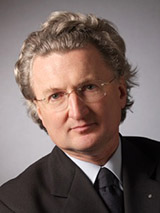 |
Dr. Alvise AmistaniBorn in Guarda di Montebelluna (Treviso) on 20 March 1958. Moved to Venice, then Treviso, settling 34 years ago in Padua. Specialised from grammar school onwards in history and the humanities, studying archaeology at the Facolta di Lettere Antiche. Graduated with papers in the prehistoric archaeology of Venetia and museology. Holds an M.A. in Management. Was practically born into agriculture and wine-growing, as his family held vineyards in Conegliano, Valdobbiadene and Montebelluna. For more than 35 years now he has owned the farm Alvise Amistani, producing highly specialised regional grapes and wines: native varieties, such as Prosecco, Bianchetta, Perera, the white grapes Boschera, Carménère, Malbec and the red Raboso. He strongly champions and invests considerably in preserving, protecting and promoting landscapes, places and historical monuments owned or acquired by his family which are associated with regional identity, local agriculture and viniculture in the Treviso Mountains. For twelve years he has chaired the association Vini Montello e Colli Asolani, and the cooperative Treviso DOC (which brings together four associations in the Province of Treviso), and acted as advisor to U.Vi.Ve. (a regional consortium that unites all the associations in Venetia under a single umbrella). Sole director of another two companies: Van Dyck srl and Alvise Amistani Guarda Soc. Agricola srl, engaging in real estate management and in the production and marketing of vini- and agricultural produce. For over 20 years a visionary architect of the Capolavoro project, which aims to restore, preserve and protect the cultural, archaeological, architectural and historical heritage that defines us, consisting not only of products of the vine but of other traditional farming methods, upholding the top-class quality of Alto Trevigiano and publicising its reputation. Also a strong advocate of traditional regional cuisine (Sapori della Memoria). |
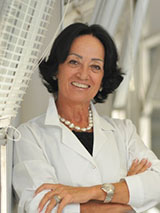 |
Prof. Maria Luisa BrandiFull Professor of Endocrinology, University of Florence, Medical School, Florence, Italy
Education/Training Positions: MD, University of Florence, Florence, Italy, 1977; School of Specialization in Endocrinology, University of Florence Hospital, 1977-1980; National Institutes of Health (NIH) Visiting Scientist in Metabolic Diseases, Metabolic Diseases Branch, NIH, Bethesda, Maryland, USA, 1984-1990; Ph.D. in Cell Biology, University of Rome, 1988; Assistant, Associate and Full Professor of Endocrinology, University of Florence, 1990-to present; Director, Regional Center on Hereditary Endocrine Tumors, University Hospital of Florence, 1998-to present; Director Clinical Unit on Metabolic Bone Disorders, University Hospital of Florence, 2007-to present; Delegate, Italy/USA Academic Interactions, Florence University, 2000-2003; Director of the University Master on Metabolic Bone Disease: From the Gene to the Cure, University of Florence, 2004-to present; Scientific Director, DeGene Spin-off, University of Florence, 2005-2009; President, Fondazione Italiana Ricerca sulle Malattie dell’Osso (F.I.R.M.O.), 2006 – to present; Consultant for the Tuscany Region on Osteoporosis 2008 – to present; Member of the Commission for Osteoporosis of the Italian Ministry of Health 2009 – 2011 . Honors and Awards: Roussel Italia Award, 1988; The European Foundation Award, 1989; Schering Award, Italian Endocrine Society, 1990; The Sandoz Foundation for Gerontological Research Award, 1991; Helena Rubinstein Award “Women in Science”, 1998; Italian Endocrine Society Senior Award, 2003; AILA Award, 2004, Pierre Delmas IOF/ESCEO Prize 2013. Current Research: Genetics and Clinics of Osteoporosis; Pathogenesis of Parathyroid Disorders; Multiple Endocrine Neoplasia; Genetics of Paget’s Disease of Bone; Bone Cell Biology; Epidemiology of Osteoporosis; Bone Inherited Disorders. |
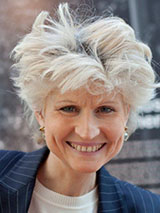 |
Anna Maria Corazza BildtAnna Maria Corazza Bildt is a Member of the European Parliament. An Italian national, she was elected to the European Parliament in June 2009 and in May 2014 by personal votes, standing as a candidate for the Swedish centre-right “Moderate” Party. She belongs to the European People’s Party group (EPP). In the European Parliament she is first Vice-Chair of the Internal Market and Consumer Protection Committee (IMCO), Vice-Coordinator for her political group in the Women Rights Committee (FEMM), and a member of the EU-Ukraine Delegation. She is a substitute member of the Civil Liberties, Home Affairs and Migration Committee (LIBE) and the EU-Turkey Joint Parliamentary Commission. Her main areas of activity are migration, the digital single market and food. |
 |
Dr. Barbara CarfagnaBarbara Carfagna: Television journalist with TV7 and Speciale TG1 and evening newsreader for TG1. Contributes to the journal and online magazine “Formiche”, the weekly “Panorama” and the daily newspaper “Il Foglio” on matters around ICT, ethical philosophy and Internet governance. Graduated with a first-class degree in Literature from “La Sapienza” University in Rome. She is the daughter of classical guitarist Carlo Carfagna and studied the violin for ten years at Rome’s “S. Cecilia” Conservatory. She originated, produces and presents the two-minute Saturday-morning news bulletin “Infosfera” for the Italian TV channel Raiuno and the online channel Raiweb, discussing philosophical and economic issues and aspects of digitisation in relation to Italy’s cultural heritage. In 1995 she began working as a journalist for Italy’s public broadcaster RAI, covering books and publishing for the arts programme L’Altra Edicola on Rai 2. She consolidated her TV skills with Rai 3, working on Format with Giovanni Minoli and for his infotainment programme Mixer. In 1998 she began reporting for TG1 Prima. Under Albino Longhi she moved to TV7 and Speciale TG1, producing reports on key news events in Italy as well as special programmes in Ethiopia and Niger with features on the spread of fundamentalist Islam, in Nigeria where she did an exclusive interview with Safya, the woman condemned for adultery to stoning, in South Africa and Cambodia, where she made historic documentary films and programmes on child trafficking, and in Germany, where she reported on the neo-Nazi scene in the former GDR. For Rai Educational she filmed reports on the French colonies in Africa. She worked for Monica Maggioni in the breakfast-time chat show Unomattina, in the chat show Porta a Porta, and in the programme about missing persons presented by Federica Sciarelli, Chi l’ha visto. In 2004 Clemente Mimun asked her to join the desk for the evening news programme TG1, which she finally did in 2006, reporting on crime and accident stories and from the courts, and researching some of Italy’s unresolved cases. Gianni Riotta made her a newsreader for TG1 and entrusted her with the series Italia italie on migration issues. She works for the programmes Tv7 and Speciale TG1, in particular publicising matters of science, philosophy and the digital economy. |
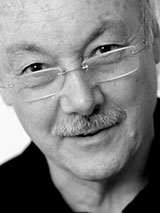 |
Prof. Dr. Günter FaltinProf. Dr. Günter Faltin developed entrepreneurship as a field of study at the Freie Universität in Berlin. In 1985 he founded Projektwerkstatt GmbH to launch the tea-importing initiative Teekampagne. He initiated and sponsored the WWF reforestation project for Darjeeling/India. In 2001 he set up Stiftung Entrepreneurship, a foundation designed to promote a more open entrepreneurial culture. Prof. Faltin has held several guest professorships in Asia and has delivered lecture series and academic workshops in more than 20 countries. He initiated the Entrepreneurship Lab and has been a Business Angel to several successful start-ups. Faltin has received many awards, including the Deutscher Gründerpreis in 2009 and the Bundesverdienstkreuz in 2010 as a “pioneer of the principle of entrepreneurship in Germany”. His book “Brain versus Capital” was a bestseller and translated into eight languages. His book “Wir sind das Kapital” (“We Are Capital”), published in February 2015, is a rich resource for entrepreneurs, helping them transform an initial idea into a mature strategy. As one of the few academics to hold a chair in this field, he is able to span the bridge between theory and first-hand practice. “We have the chance to build a better world, more caring, more amusing, more empathetic and more artistic than has ever been possible before. But we have to climb into the ring ourselves, get things moving, take matters into our own hands. We can’t leave it to those who simply want to maximise profit.” |
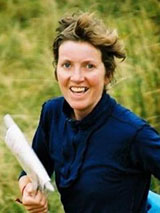 |
Dr. Michelle HarvieDr Michelle Harvie is a research dietitian from the Genesis Breast Cancer Prevention Centre, University Hospital South Manchester Trust. She qualified as a dietitian in 1991. Her current research covers optimum diet and exercise strategies to prevent breast cancer and other weight related conditions. She has over 30 peer reviewed publications and was awarded the British Dietetic Association Rose Simmond’s Award 2005 for her paper on weight gain amongst breast cancer patients receiving adjuvant chemotherapy. In 2011 she received the Association Study Obesity National Best practice award for her work on intermittent energy restricted diets. She is principal investigator for three ongoing trials testing intermittent diet in different populations: B-AHEAD- 2 trial in breast cancer patients receiving adjuvant chemotherapy; B-AHEAD- 3 in metastatic breast cancer receiving chemotherapy and PROCAS-lifestyle trial in healthy overweight/obese women in the national breast screening programme. A further study is assessing the effects of intermittent vs daily energy restriction on hepatic and pancreatic fat in obese women (BRRIDE -2). Dr Harvie has published three self-help guides for the public to follow intermittent diets; The 2 day diet (Ebury Feb 2013); The 2 day diet cook book (Ebury April 2013) and the quick and easy edition (Ebury Feb 2014). All author proceeds go to the Genesis Breast Cancer Prevention charity. http://www.genesisuk.org/ |
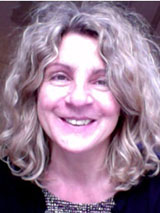 |
Dr. Clara MavelliaClara Mavellia from Milan was granted her doctorate at the Freie Universität in Berlin, where she has been working as an academic and journalist ever since. From September 2005 to April 2008 she commuted between Berlin and Munich to attend the interdisciplinary executive M.A. in Philosophy, Politics and Economics (PPE) at Ludwig-Maximilians-Universität. To promote an interaction between Philosophy and Economy, Ethics and Business she founded on March 2010 the Cultural Entrepreneurship Institute. The Cultural Entrepreneurship Institute in Berlin disseminates information about applying ethical principles to practical life and encourages interplay between ethics and business. If these ideas are to spread, it is essential that students, trainees and any interested citizens can find out about the theory and the diverse ways it can be put into practice. That is why Clara Mavellia regularly hosts international, interdisciplinary and intersectoral conferences – in recent years at the Freie Universität Berlin, at the Handelshögskolan in Göteborg and at the Ludwig-Maximilians-Universität in München. Part of her work is to conduct interviews with people – artists, entrepreneurs, academics, journalists, politicians, etc. – who are particularly passionate and competent in their commitment. This is something the audience finds especially motivating.
Since its foundation, the Institute for Cultural Entrepreneurship has attracted wide support in Germany, Europe and around the world with its ideas and virtual community. The videos of all events are posted in English, German and Italian on ceberlin, the YouTube Channel of the Cultural Entrepreneurship Institute Berlin. https://www.youtube.com/user/ceberlin As the founder of the Cultural Entrepreneurship Institute Clara Mavellia is a consultant for corporates, organizations and institutions seeking to develop a strategy for a sustained economical, ecological, social and ethical foundation. She is much in demand as a keynote speaker. |
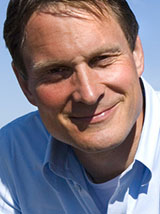 |
Claus MeyerClaus Meyer was born in Nykobing Falster, Denmark, in 1963. With the Nordic Cuisine Manifesto he set out to change the scandinavian food culture by fostering local agriculture, honouring the environment and creating dishes with a uniquely Nordic identity. He promoted these ideas on television, in books and by co-founding the prize-winning restaurant Noma in Copenhagen with Rene Redzepi. With a tireless drive to improve our well-being and tackle social problems, Meyer has set up many food-related projects and companies. Through his Melting Pot Foundation he inspires the whole world e. g. a food movement and a culinary culture in Bolivia, where he opened the gourmet restaurant Gustu |
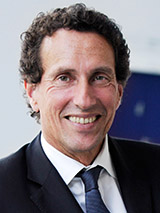 |
Prof. Dr. Julian Nida-RümelinJulian Nida-Rümelin is one of Germany’s best-known contemporary philosophers, along with Jürgen Habermas and Peter Sloterdijk. He studied Philosophy, Physics, Mathematics and Political Sciences, acquiring his doctorate in the field of Philosophy under Wolfgang Stegmüller. There followed a period as a research fellow at Munich, where he obtained a post-doctoral degree in 1989. After a guest lectureship in the United States, he was appointed first to a Chair in the Ethics of Bioscience at the University of Tübingen, then to another in Philosophy at the University of Göttingen. Later he was called to the Geschwister-Scholl-Institut für Politikwissenschaft at the Ludwig Maximilian University in Munich, and he headed this institute from 2004 to 2007. In 2009 he moved to the Philosophy Faculty, accepting a Chair in Philosophy. From 2009 until 2012 he was Dean of the Philosophy Faculty. In 2011, as President of the German Society of Philosophy, he organised its congress “A World of Reasons” in Munich, with 400 lectures and 2700 participants. He chaired the Board of Trustees of the Deutscher Studienpreis from 2004 to 2012. He is spokesperson for the extra-mural M.A. in Philosophy, Economics and Politics which he co-founded at Munich University. Since 2011 JNR has been running Munich’s interdisciplinary Competence Centre for Ethics. In 2014 he received an honorary doctorate from the University of Trieste. Since 2014 he has served on the advisory committee of the Institute of Law, Politics and Development (Dirpolis Institute) at the Scuola Superiore Sant’Anna in Pisa. Julian Nida-Rümelin is an honorary professor at the Humboldt University in Berlin, and also an Ordinary Member of the Berlin-Brandenburg Academy of Sciences, the European Academy of Sciences and Arts, and the Academy for Ethics in Medicine. For five years (1998-2002) JNR switched to the world of cultural politics, first as Cultural Secretary for the Bavarian capital Munich, and then as Commissioner for Culture in Gerhard Schröder’s first cabinet. Nida-Rümelin works with the German Society For Financial Analysis and Asset Management (DVFA) towards ethically aware training for financial managers. He also serves on the Daimler AG Advisory Board for Integrity and Corporate Responsibility and chairs the scientific advisory board at Parmenides Academy GmbH, a think tank that trains and advises executives around philosophical and ethical issues. JNR has written many books about issues of practical philosophy and political theory, including Kritik des Konsequentialismus (1993), Economic Rationality and Practical Reason (1997), Ethische Essays (2002), Angewandte Ethik (2005)², Demokratie und Wahrheit (2006), Philosophie und Lebensform (2009) and the Reclam trilogy devoted to Rationality (2001), Freedom (2005) and Responsibility (2011). His latest publications are: Die Optimierungsfalle – Philosophie einer humanen Ökonomie (2011), Risikoethik (2012), Der Sokrates-Club – Philosophische Gespräche mit Kindern and Philosophie einer humanen Bildung (2013), Akademisierungswahn – zur Krise beruflicher und akademischer Bildung (2014) and Auf dem Weg in eine deutsche Bildungskatastrophe – Zwölf unangenehme Wahrheiten (2015). Some of his political speeches are contained in the compilation Humanismus als Leitkultur (2006). |
 |
Piero PrennaPiero Prenna was born in Taranto in 1964. He began his career in the management of a public works company in Apulia. Having trained as an IT engineer, he was recruited in 1997 for the sales office of the Comunità di San Patrignano, where his task was to analyse sales and to monitor and supervise sales targets. After this his focus shifted to wine-growing. Continuing professional development enabled him to acquire the in-depth knowledge he needed. In 2003 the Italian Association of Sommeliers, through its regional office in Rimini, granted him his sommelier’s certificate. As he built his career, he became commercial director of the wine department, taking on additional responsibility for related activities, such as marketing the agricultural produce from his rural district. In all it does, the Comunità di San Patrignano combines economic, commercial factors with social considerations. All business conducted by the community shores up its economic sustainability, but is simultaneously a vehicle for education, enabling young people to train and subsequently to integrate into society. The prime focus of his work consists in marketing local produce and production, which clearly symbolise an attitude to people which the community seeks to communicate to the general public. Local farm produce is sold around the world, and its quality testifies to a successful social project: human wellbeing. |
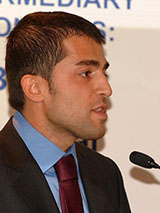 |
Dr. Piersergio TrapaniEntrepreneur. Graduated in business administration from the University of Modena. In 1999, he founded Gruppo36 – Sartoria digitale Srl, a consultancy for digital business solutions. In 2001, he received a Philip Morris Marketing Award. In 2006, he and his wife Francesca opened the first Divina Piadina outlet in a chain specialising in the artisan production of piadina, or Italian flatbread. Since 2008, he has sat on the national board of the Italian ICT employers’ association Assintel-Confcommercio. Since 2014, he has been deputy chairman of the young Milan-based entrepreneurs in Confcommercio. |
Dr. Paolo Signorini |
|
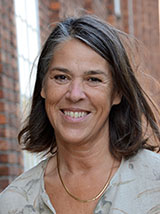 |
Petra WadströmPetra Wadström born Tengzelius, 1952 in Stockholm. Mother of 4 children. Founder of Solvatten and CEO of the company Solvatten AB. Biochemical-medical research technician at the Karolinska Institute in Sweden. After several years of research in Biozentrum, Basel Petra turned her focus to art, design and innovation. ”Being an artist has helped me hugely to think outside the box, combining the elements of research and creativity. My passion for smart solutions that really change life to the better I believe has to do with a practical mind.” Petra Wadström |
 |
Dr. Francesco ZingariTrained as a dental technician in Milan (1993) then graduated in dentistry at Milan University (2005). Member of the Italian Association of Parodontology (SIDP) and the Italian Academy of Prosthetics (AIOP). From 2005 service provider on the maxillofacial surgery ward of the Istituto Ortopedico Galeazzi (IOG) in Milan. Since 2009 head of clinical services at the Italian Association of Ectodermal Dysplasia (ANDE). Has published widely in Italy and internationally and contributed to academic reports. His clinical practice focuses on reconstructive surgery, implantology and dental prosthetics. |
 |
Electric BlueELECTRIC BLUE was born in 2002 out of a passion for the blues. The band draw their inspiration from black music, with its roots in New Orleans. The upbeat rhythms of swing blend with the melancholy melodies of blues, spiced with elegance and style. To celebrate EXPO 2015 we will be playing swing from the fifties to recall the mood in Italy in the years after Liberation, when those American rhythms helped our country to put the old smile back on its face. The members of the band are: |
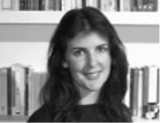 |
Dr. Tiziana RussoTiziana Russo, who paints under the name TITIA, has chosen to approach the world of imagery through her study of classical antiquity and Greek and Roman archaeology. She graduated with distinction in Classical Philology from the University of Milan (Università degli Studi). She then qualified as a teacher, performing outstandingly in her exams at the Catholic University of Milan (Università Cattolica del Sacro Cuore). She currently teaches literature in grammar schools, a task she tackles with great passion, often transcoding language reflected in words of Greek and Latin origin into a powerful visual idiom expressed in archaeological settings. A remote and archaic past speaks to us from the fine, mineral sand blending with colours of bronze and copper, breathing life into her canvases, which we should see as archaeological excavations. |
Programme
| 10:00 – 11:00 | Admission |
| 11:00 – 11:30 | Dr. Clara Mavellia, Cultural Entrepreneurship Institute Berlin |
| 11:30 – 11:40 | Dr. Barbara Carfagna, Journalist RAI |
| 11:40 – 12:00 | Dr. Francesco Zingari, Servizio Clinico ANDE (Associazione Nazionale Displasia Ectodermica) |
| 12:00 – 12:10 | Dr. Tiziana Russo |
| 12:10 – 12:30 | Prof. Maria Luisa Brandi, Università Firenze, Credits4Health |
| 12:30 – 12:50 | Anna Maria Corazza Bildt, Member of the European Parliament, MEP |
| 12:50 – 13:00 | Electric Blue, Music Performance |
| 13:00 – 14:00 | Break |
| 14:00 – 14:20 | Dr. Alvise Amistani Guarda, Soc. Agricola, Progetto Capolavoro |
| 14:20 – 14:40 | Dr. Piersergio Trapani, Divina Piadina |
| 14:40 – 15:00 | Piero Prenna, Fondazione S. Patrignano |
| 15:00 – 15:30 | Break |
| 15:30 – 16:30 | Prof. Dr. Julian Nida-Rümelin |
| 16:30 – 17:00 | Closing Words Dr. Clara Mavellia |
| Art Exhibition | Dr. Tiziana Russo |
| Music Performance | Electric Blue |
Video interviews
| 26.03.2015 | Claus Meyer, Co-Founder Noma Restaurant, Copenhagen |
| 17.04.2015 | Dr. Paolo Signorini, Owner Caesar Augustus Hotel, Capri |
| 15.05.2015 | Prof. Dr. Günter Faltin, Teekampagne, Stiftung Entrepreneurship |
| 20.10.2015 | Dr Michelle Harvie, Research Dietitian, Genesis Breast Cancer Prevention Centre, University Hospital Manchester |
| 18.08.2015 | Petra Wadström, Founder/CEO Solvatten, Stockholm |
Location:
Palazzo Bovara: Corso Venezia, 51, 20129 Milano, Italy
Partners
Partners are entrepreneurs from any business sector who are helping to build a better world with their ethical and/or innovative business idea or product. Our motto – “Do good and spread the word” – is your opportunity to tell others about what you are doing. The format resembles an Italian piazza during the Renaissance: you will cross paths with artists, scientists and visitors, start chatting and exchange stimulating ideas. Mixing ideas from different walks of life is the best basis for successful creativity! You will be helping to shape our global market place in a way that makes both an ethical impact and economic sense.
To propagate these ideas, it is important that students and trainees from all disciplines and fields who would like to know more about ethics and entrepreneurship can take part in the event free of charge.
Partners are companies who offer to assume the costs for these students and trainees to attend, because they feel they have a social responsibility to spread the concept of sustainability at an early stage.
In this Spirit: It would be much appreciated if you could support this event with a contribution of €5,000 plus VAT.
Register
Admission is free, you need to register at info@cultural-entrepreneurship.de
Literature
-
- Arikha, Noga, Passions and Tempers: A History of the Humours, New York: Harper Perennial 2008
- Aristoteles, Nikomachische Ethik, Reinbeck: Rowohlt 2006
- Bhagwati, Jagdish, Verteidigung der Globalisierung, München: Pantheon 2008
- Blasche, Siegfried/Köhler, Wolfgang R./Rohs, Peter (Hg.), Markt und Moral St. Galler Beiträge zur Wirtschaftsethik, Bd. 13, Bern/Stuttgart/Wien: Haupt 1994.
- Busse, Tanja, Die Einkaufsrevolution: Konsumenten entdecken ihre Macht, München: Karl Blessing (Random House) 2006.
- Cowton, Christopher/ Haase, Michaela (Hg.), Trends in Business and Economic Ethics (Studies in Economic Ethics and Philosophy), Berlin: Springer 2008.
- Diefenbacher, Hans, Gerechtigkeit und Nachhaltigkeit. Zum Verhältnis von Ethik und Ökonomie, Darmstadt: Wissenschaftliche Buchgesellschaft 2001.
- Düwoll, Marcus / Hübenthal, Christoph / Werner, Micha H. (Hrsg.): Handbuch Ethik, Stuttgart 2002.
- Enderle, Georges, Handlungsorientierte Wirtschaftsethik. Grundlagen und Anwendungen, (St. Galler Beiträge zur Wirtschaftsethik, Bd. 8), Bern/Stuttgart/Wien: Haupt 1993.
- Faltin, Günter, Kopf schlägt Kapital. Die ganz andere Art, ein Unternehmen zu gründen. Von der Lust, ein Entrepreneur zu sein, München: Hanser 2008.
- Ferdowsi, Mir A. u.a., Weltprobleme, München: Bayerische Landeszentrale für Politische Bildungsarbeit 2007.
- Furger, Franz, Moral oder Kapital?. Grundlagen der Wirtschaftsethik, Benziger: Zürich/Mödling 1992.
- Hartmann, Kathrin, Ende der Märchenstunde: Wie die Industrie die Lohas und Lifestyle-Ökos vereinnahmt, München: Karl Blessing (Random House) 2009.
- Hausman, Daniel M., “Philosophy of Economics”, The Stanford Encyclopedia of Philosophy (Fall 2008 Edition), Edward N. Zalta (ed.),
- Hickman, Leo, Fast nackt: Mein abenteuerlicher Versuch, ethisch korrekt zu leben, München: Piper 2006.
- Höffe, Otfried, Lexikon der Ethik, 6. Auflage, München: C.H. Beck 2002.
- Homann, Karl (Hg.), Aktuelle Probleme der Wirtschaftsethik, Berlin: Dunker & Humblot 1992.
- Homann, Karl (Hg.), Wirtschaftsethische Perspektiven I. Theorie – Ordnungsfragen – Internationale Institutionen, Berlin: Dunker & Humblot 1994.
- Homann, Karl/Lütge, Christoph, Einführung in die Wirtschaftsethik, Münster, Berlin u.a.: Lit-Verlag 2005.
- Homann, Karl/ Suchanek, Andreas, Ökonomik. Eine Einführung, Tübingen: Mohr Siebek 2005.
- Homann, Karl, Ethik in der Marktwirtschaft – Nr. 3, München: Roman Herzog Institut 2007.
- Horx, Matthias, Das Buch des Wandels, München: DVA 2009
- Jones, Van, The Green Collar Economy: How One Solution Can Fix Our Two Biggest Problems, New York: HarperOne 2008.
- Kant, Immanuel, Grundlegung zur Metaphysik der Sitten, Hamburg: Meiner 1999.
- Kirchgässner, Gebhard, Homo oeconomicus: Das ökonomische Modell individuellen Verhaltens und seine Anwendung in den Wirtschafts- und Sozialwissenschaften, 3. ergänzte und erweiterte Auflage, Tübingen: Mohr Siebeck 2008.
- Kirig, Anja/ Rauch, Christian/Wenzel, Eike, Greenomics. Wie der grüne Lifestyle Märkte und Konsumenten verändert, München: Redline Verlag 2008.
- Kirig, Anja/Wenzel, Eike, Lohas: Bewusst grün – alles über die neuen Lebenswelten, München: Redline Verlag 2009.
- Korff, Wilhelm u.a. (Hg. im Auftrag der Görres-Gesellschaft), Wirtschaftsethik: Ein Handbuch, Band 1-4, Berlin: Berlin University Press 2009.
- Koslowski, Peter (Hg.), Contemporary Economic Ethics and Business Ethics (Studies in Economic Ethics and Philosophy), Berlin: Springer 2000.
- Küpper, Hans-Ulrich, Unternehmensethik: Hintergründe, Konzepte und Anwendungsbereiche Stuttgart: Schäffer-Poeschel 2007.
- Lautermann, Christian/ Pfriem, Reinhard/Wieland, Josef, Ethik in der Naturkostbranche, Marburg: Metropolis 2005.
- Lohmann, Karl R./ Priddat, Birger P. (Hg.), Ökonomie und Moral. Beiträge zur Theorie ökonomischer Rationalität, München: Oldenbourg 2007.
- Mackie, John Leslie, Ethik. Die Erfindung des moralisch Richtigen und Falschen., Stuttgart: Reclam 1981.
- Miller, David, „Ethics of the Market“, in: E. Craig (Hg.), Routledge Encyclopedia of Philosophy (Vso10), London: Routledge 1998, S. 107 – 110.
- Nida-Rümelin, Julian, Economic Rationality and Practical Reason (Theory and Decision Library), Dordrecht/Boston: Kluwer 1997.
- Nida-Rümelin, Julian, Humanismus als Leitkultur. Ein Perspektivenwechsel. Ein Perspektivenwechsel, München: Beck 2006.
- Nida-Rümelin, Julian, Philosophie und Lebensform, Frankfurt: Suhrkamp 2009.
- Nida-Rümelin, Julian (Hg.), Praktische Rationalität. Grundlagenprobleme und ethische Anwendungen des rational choice-Paradigmas, Berlin: de Gruyter 1994 (458 S.).
- Nida-Rümelin, Julian (Hg.), Angewandte Ethik: Die Bereichsethiken und ihre theoretische Fundierung. Ein Handbuch, Stuttgart: Kröner 1996, zweite erweiterte Auflage 2005.
- Precht, Richard David, Wer bin ich – und wenn ja wie viele?, München: Goldmann 2007
- Precht, Richard David, Liebe: Ein unordentliches Gefühl, München: Goldmann 2009
- Priddat, Birger P., Politische Ökonomie: Neue Schnittstellendynamik zwischen Wirtschaft, Gesellschaft und Politik, Wiesbaden: VS Verlag 2008.
- Priddat, Birger P., Wirtschaft durch Kultur, Marburg: Metropolis 2008.
- Priddat, Birger P., Ökonomische Knappheit und moralischer Überschuß. Theoretische Essays zum Verhältnis von Ökonomie und Ethik, Hamburg: Verlag Steuer und Wirtschaft (jetzt Berlin: Schmidt Verlag) 1994.
- Prinz, Aloys/ Koslowski, Peter (Hg.), Bittere Arznei: Wirtschaftsethik und Ökonomik der pharmazeutischen Industrie, München: Fink 2007.
- Radermacher, Franz Josef / Obermüller, Marianne / Spiegel, Peter, Global Impact: Der neue Weg zur globalen Verantwortung , München: Hanser 2009.
- Schirrmacher, Frank, Payback, München: Blessing 2009
- Sen, Amartya, Development as Freedom(dt. Ökonomie für den Menschen: Wege zu Gerechtigkeit und Solidarität in der Marktwirtschaft ), New York: Knopf 1999.
- Sen, Amartya, Inequality Reexamined, Oxford: Clarendon Press 1992.
- Sen, Amartya, On Ethics and Economics, Oxford und New York: Basil Blackwell 1987.
- Sen, Amartya, The Idea of Justice, Harvard: Harvard University Press 2009.
- Steffen, Alex, WorldChanging (World Changing): Das Handbuch der Ideen für eine bessere Zukunft, München: Knesebeck 2008.
- Stiglitz, Joseph, Die Schatten der Globalisierung, München: Siedler 2002
- Stiglitz, Joseph, Die Chancen der Globalisierung, München: Siedler 2006
- Stiglitz, Joseph, Die wahren Kosten des Krieges, München: Pantheon 2008
- Ulrich, Peter: Der entzauberte Markt. Eine wirtschaftsethische Orientierung, Freiburg i.B.: Herder 2002
- Ulrich, Peter, Integrative Wirtschaftsethik: Grundlagen einer lebensdienlichen Ökonomie, 4., vollständig neu bearbeitete Auflage, Bern: Haupt 2007.
- Ulrich, Peter, „Wirtschaftsethik“, in: Marcus Düwell, Christoph Hübenthal, Micha H. Werner (Hg.), Handbuch Ethik, Weimar/Stuttgart: J. B. Metzler/Carl Ernst Poeschel 2006, S. 297 – 302.
- Unfried, Peter, Öko: Öko: Al Gore, der neue Kühlschrank und ich, Köln: Dumont Buchverlag 2008.
- Vossenkuhl, Wilhelm, „Wirtschaftsethik“, in: Höffe, Otfried (Hg.), Lexikon der Ethik, 5. Auflage, München: C.H. Beck 1997, 338-341.
- Vossenkuhl, Wilhelm, Die Möglichkeit des Guten: Ethik im 21. Jahrhundert, München: C.H. Beck 2006
- Wall, Hans, Aus dem Jungen Wird nie was, München: Heyne 2009
- Walther, Dietrich, Green Business – das Milliardengeschäft: Nach den Dot-coms kommen jetzt die Dot-greens, Wiesbaden: Gabler 2008.
- Wieland, Josef, Die Ethik der Governance, 5. durchgesehene Auflage, Marburg: Metropolis 2007.
- Yunus, Muhammad, Banker to the Poor: The Story of the Grameen Bank, London: Aurum Press Ltd. 1998.
- Yunus, Muhammad, Creating a World without Poverty: Social Business and the Future of Capitalism, Ney York: PublicAffairs 2007.
- Zimmerli, Walter Ch./Michael S. Aßländer, „Wirtschaftsethik“, in: Julian Nida-Rümelin (Hg.), Angewandte Ethik: Die Bereichsethiken und ihre theoretische Fundierung. Ein Handbuch, 2. aktualisierte Auflage, Stuttgart: Kröner 2005, S. 302 – 384.

